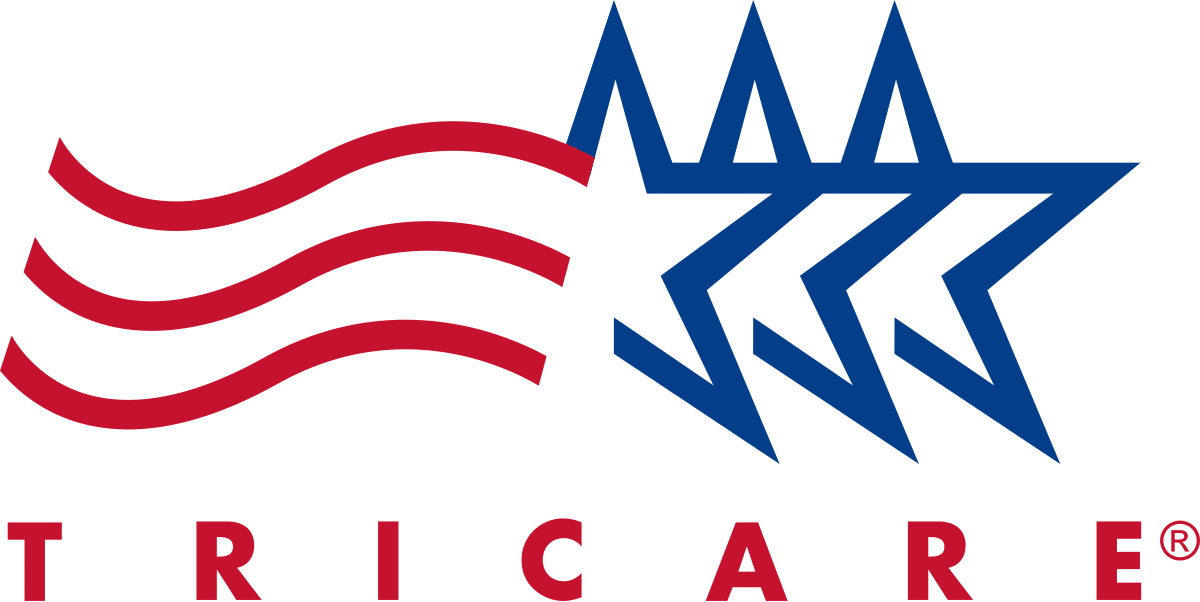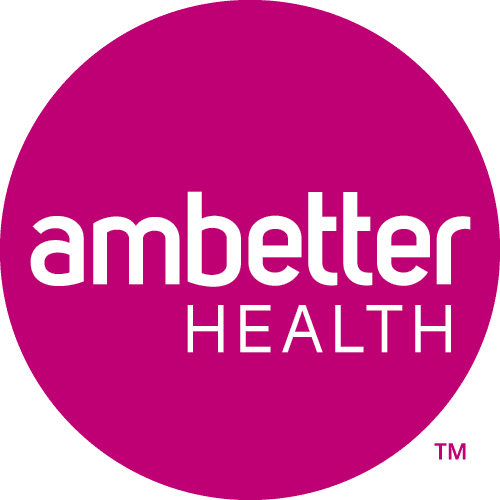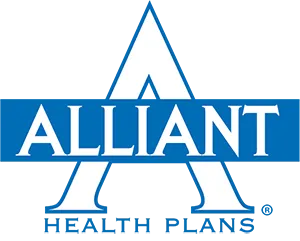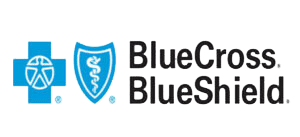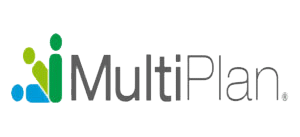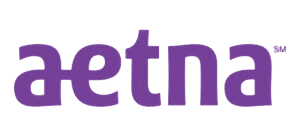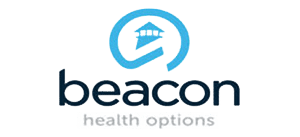Opioid Recovery Resources for Rural Georgia
The opioid crisis has affected communities across America, but rural Georgia faces unique challenges in addressing addiction and supporting recovery.
Limited access to healthcare providers, transportation barriers, stigma in close-knit communities, and fewer treatment options create significant obstacles for rural residents seeking help for opioid use disorder.
This comprehensive guide serves as the ultimate resource for individuals, families, healthcare providers, and community organizations navigating opioid recovery in rural Georgia.
By consolidating available resources, providing region-specific information, and sharing real recovery stories, we aim to illuminate the path to recovery for those who need it most.
Understanding the Opioid Crisis in Rural Georgia
The Scope of Georgia’s Opioid Crisis
Georgia has experienced a dramatic increase in opioid-related overdose deaths in recent years.
According to the Georgia Department of Public Health, opioid overdose deaths nearly doubled from 2019 to 2022, with over 2,600 Georgians losing their lives to drug overdoses in 2022 alone.
The introduction of fentanyl into the drug supply has significantly worsened the crisis. This synthetic opioid, up to 50 times more potent than heroin, has been found in counterfeit pills and mixed with other substances, often without the user’s knowledge.
Rural Georgia’s Unique Challenges
Rural communities in Georgia face distinct challenges when it comes to addressing opioid addiction:
- Healthcare Access: Many rural counties have limited or no addiction treatment providers, with some residents having to travel over an hour to reach the nearest facility.
- Transportation Barriers: Public transportation is scarce or nonexistent in many rural areas, making it difficult for individuals to attend regular treatment appointments.
- Stigma: In small communities where “everyone knows everyone,” the stigma surrounding addiction can be particularly intense, preventing people from seeking help.
- Economic Factors: Rural Georgia counties often have higher unemployment rates and lower median incomes, making treatment costs prohibitive for many residents.
Provider Shortages: There is a significant shortage of healthcare providers trained in addiction medicine in rural areas, with some counties having no physicians certified to prescribe medication-assisted treatment.
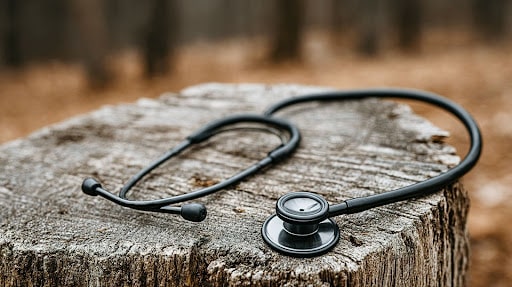
Regional Impact Across Rural Georgia
The impact of the opioid crisis varies across Georgia’s rural regions:
- North Georgia (Regions 1 & 2): These mountainous regions have been particularly hard-hit, with some of the highest overdose rates in the state. In 2022, Madison County had the highest opioid overdose death rate at 50.8 per 100,000 residents.
- Central Georgia (Region 5): Rural counties face significant challenges with limited treatment options despite the growing need. Crisp County had the second-highest overdose death rate in 2022 at 45.7 per 100,000 residents.
- Southwest Georgia (Region 8): This agricultural region has seen increasing overdose rates, with Worth County reporting 44.1 deaths per 100,000 residents in 2022.
- Southeast Georgia (Region 6): Coastal and rural counties in this region have experienced growing opioid issues but often have fewer resources than other areas.
Recovery Success Stories
A Mother’s Journey to Recovery in North Georgia
This story is based on the experiences of a mother from Dahlonega, Georgia, in the North Georgia mountains.
For years, I struggled with opioid addiction that began with a legitimate prescription for a back injury. What started as pain management quickly spiraled into dependency that lasted over 15 years. Living in a small mountain town, I felt isolated in my struggle and ashamed to seek help.
“I felt like a failure,” I remember thinking. “We had to pick up and move because my addiction was so strong, it was a financial strain on my family. I felt hopeless.”
The turning point came after a health crisis landed me in a rehabilitation facility in Rabun County. There, I connected with a life care specialist who approached my addiction differently than anyone I had encountered before.
She listened without judgment, educated me about options I never knew existed, and connected me with a program that provides monthly naltrexone injections.
“I was in a dark place when I met her,” I recall. “She showed compassion and understanding. She absolutely changed my life.”
Today, I’m six months into my recovery journey. What made the difference was finding a professional who understood rural challenges and could connect me to appropriate resources. I want other rural Georgians to know that recovery is possible, even when you feel isolated.
From Paramedic to Patient to Peer Support in Douglas County
This story is based on the experiences of a former paramedic from Douglas County, Georgia.
My opioid addiction began at age 16 after a car accident. Despite the early start, I managed to build a career as a paramedic, get married, and have children—all while struggling with opioid use disorder for over 26 years.
The irony of my situation wasn’t lost on me. As a paramedic, I would revive people who had overdosed, often the same people every week, while navigating my addiction.
“I didn’t want to continue the life that I was living, but I was so terrified to be seen in that light,” I remember thinking. “I was so terrified of what that would look like for me. Like we were hopeless, you know, we were a strain on the system.”
What kept me from getting help was the stigma I witnessed firsthand in my profession. When I finally did seek treatment, I encountered numerous barriers—long wait times, insurance issues, and my shame.
“I’d be looking at my watch going, I mean, ‘15 minutes from now, I’m going to be violently ill; somebody’s got to help me,’” I recall. “And then I would give up. And I would leave. Very rarely did I even call them the next day.”
It’s been six years since I last used substances. Today, I use my experiences to help others in rural Georgia communities understand that addiction is a disease, not a moral failing, and that recovery is possible with the right support.
Breaking Family Patterns in Middle Georgia
This story is based on the experiences of a woman from Macon, Georgia.
My family’s answer to every problem was the same: “Somebody dies? Get high, get drunk. No matter what happens in life, get high, get drunk.”
We didn’t embrace mental health help because seeking it meant you were “crazy.”
My stimulant addiction followed this family pattern. When I needed help, my family didn’t understand or support treatment. It took multiple stints in rehab and detox facilities over several years before I found lasting recovery.
“I think about the people that were sitting around the table with me when I was doing crack cocaine,” I reflect. “Several of them are not here now. Several of them have OD’d. If you don’t have any hope, why are you going to try to be better?”
After about 20 years in recovery, I now work with Macon’s River Edge Behavioral Health, helping people who have been incarcerated and who also have substance use disorders or other mental health issues.
“I come across people plenty of times in the five years that I’ve been doing this where their stories can almost line up to mine,” I say. What once seemed like a hopeless situation has become my greatest asset in helping others find their path to recovery.
National Agencies and Resources
Substance Abuse and Mental Health Services Administration (SAMHSA) – Federal agency that leads public health efforts to advance behavioral health in the United States, offering a national helpline, treatment locator, and educational resources.
National Institute on Drug Abuse (NIDA) – Research institute that provides scientific information about drug use and addiction, including opioids.
Centers for Disease Control and Prevention (CDC) – Opioid Overdose – Provides data, resources, and prevention strategies for addressing the opioid epidemic.
SAMHSA’s National Helpline – 1-800-662-HELP (4357) – 24/7, 365-day-a-year treatment referral and information service for individuals and families facing mental and/or substance use disorders.
FindTreatment.gov – SAMHSA’s treatment locator service to find substance use treatment facilities nationwide.
National Alliance on Mental Illness (NAMI) – Provides advocacy, education, support, and public awareness for individuals and families affected by mental illness, including those with co-occurring substance use disorders.
Faces & Voices of Recovery – National advocacy organization dedicated to organizing and mobilizing the recovery community.
Shatterproof – National nonprofit organization dedicated to ending the addiction crisis in America.
Partnership to End Addiction – Resources for families navigating a loved one’s addiction and recovery journey.
Narcotics Anonymous – Global, community-based organization offering recovery from the effects of addiction through a twelve-step program.
Alcoholics Anonymous – International fellowship dedicated to helping individuals recover from alcoholism through a twelve-step program.
SMART Recovery – Global community of mutual-support groups offering science-based, self-empowered addiction recovery.
National Association for Rural Mental Health – Focuses on rural mental health and substance use issues, providing resources and advocacy.
Rural Health Information Hub – Provides information on rural health issues, including substance use disorders.
Harm Reduction Coalition – National advocacy and capacity-building organization promoting the health and dignity of individuals and communities affected by drug use.

Georgia State Agencies and Resources
Georgia Department of Public Health – Provides resources for opioid prevention, surveillance data, and public health initiatives to combat the opioid crisis.
Georgia Department of Behavioral Health and Developmental Disabilities (DBHDD) – Serves as the opioid authority for the state of Georgia, offering prevention, treatment, and recovery support services.
Georgia Office of the Attorney General – Provides resources and initiatives to combat the opioid epidemic through legal and educational means.
Georgia Department of Community Health – Oversees healthcare programs and services, including those related to substance abuse treatment.
Council of Accountability Court Judges of Georgia – Supports drug courts and other accountability courts that provide alternatives to incarceration for individuals with substance use disorders.
Criminal Justice Coordinating Council – Coordinates criminal justice system efforts, including those related to substance abuse treatment and prevention.
Georgia Prevention Project – Statewide prevention organization focused on reducing substance abuse among teens and young adults.
Georgia Council on Substance Abuse – Dedicated to reducing the impact of substance abuse in Georgia communities through education, advocacy, and training.
Regional Health Districts and Community Service Boards
Community Service Boards (CSBs) – Local agencies providing mental health, developmental disability, and substance abuse services throughout Georgia.
Advantage Behavioral Health Systems – Serving Athens-Clarke, Barrow, Elbert, Greene, Jackson, Madison, Morgan, Oconee, Oglethorpe, and Walton counties.
Aspire Behavioral Health & Developmental Disability Services – Serving Baker, Calhoun, Colquitt, Decatur, Dougherty, Early, Grady, Lee, Miller, Mitchell, Seminole, Terrell, Thomas, and Worth counties.
Avita Community Partners – Serving Banks, Dawson, Forsyth, Franklin, Habersham, Hall, Hart, Lumpkin, Rabun, Stephens, Towns, Union, and White counties.
Cobb County Community Services Board – Serving Cobb County with addiction and recovery services.
Gateway Behavioral Health Services – Serving Bryan, Camden, Chatham, Effingham, Glynn, Liberty, Long, and McIntosh counties.
Georgia Mountains Community Services – Serving Fannin, Gilmer, Murray, Pickens, and Whitfield counties.
Highland Rivers Health – Serving Bartow, Cherokee, Floyd, Fannin, Gordon, Haralson, Paulding, Pickens, Polk, and Whitfield counties.
Legacy Behavioral Health Services – Serving Ben Hill, Berrien, Brooks, Cook, Echols, Irwin, Lanier, Lowndes, Tift, and Turner counties.
Lookout Mountain Community Services – Serving Catoosa, Chattooga, Dade, and Walker counties.
McIntosh Trail Community Service Board – Serving Butts, Fayette, Henry, Lamar, Pike, Spalding, and Upson counties.
Middle Flint Behavioral HealthCare – Serving Crisp, Dooly, Macon, Marion, Schley, Sumter, Taylor, and Webster counties.
New Horizons Behavioral Health – Serving Chattahoochee, Clay, Harris, Muscogee, Quitman, Randolph, Stewart, and Talbot counties.
Oconee Center – Serving Bleckley, Dodge, Montgomery, Pulaski, Telfair, Wheeler, and Wilcox counties.
Pineland Area BHDD – Serving Appling, Bulloch, Candler, Emanuel, Evans, Jeff Davis, Tattnall, Toombs, and Wayne counties.
River Edge Behavioral Health – Serving Baldwin, Bibb, Crawford, Houston, Jones, Monroe, Peach, Putnam, Twiggs, and Wilkinson counties.
Serenity Behavioral Health Systems – Serving Burke, Columbia, Emanuel, Glascock, Jefferson, Jenkins, Lincoln, McDuffie, Richmond, Screven, Taliaferro, Warren, and Wilkes counties.
Unison Behavioral Health – Serving Atkinson, Bacon, Brantley, Charlton, Clinch, Coffee, Pierce, and Ware counties.

Recovery and Support Resources
Perry Wellness Center – A peer wellness and recovery center in Americus, Georgia, serving rural communities in Southwest Georgia.
PLR (People Living in Recovery) – A recovery community organization providing peer support services and recovery resources in Georgia.
Georgia Council on Substance Abuse – Dedicated to reducing the impact of substance abuse in Georgia communities through education, advocacy, and training.
The Connection Forsyth – A recovery community organization serving Forsyth County and surrounding areas.
The DOOR (Dublin Outreach Opportunity Resources) – A recovery community center serving Dublin and surrounding rural areas.
R2ISE Theatre – Uses performing arts as a pathway to recovery and healing for individuals affected by substance use disorders.
Georgia Recovery Project – Provides recovery support services and resources throughout Georgia.
Navigate Recovery Gwinnett – Offers recovery support services and resources that rural residents can access.
FAVOR South – Faces and Voices of Recovery South Georgia chapter provides recovery support services.
Athens Area Commencement Center – Provides recovery support services in Athens and surrounding rural counties.
Mosaic Recovery Center – Faith-based recovery center serving rural communities in North Georgia.
Penfield Christian Homes – Faith-based recovery centers with locations in rural Georgia.
No Longer Bound – Faith-based residential recovery program in North Georgia accessible to rural residents.
Crisis and Support Helplines
Georgia Crisis and Access Line (GCAL) – 1-800-715-4225 – 24/7 hotline for accessing mental health and substance abuse services in Georgia.
Georgia Council on Substance Abuse Warm Line – 1-844-326-5400 – Peer-operated line for substance abuse support.
Georgia Addiction & Recovery Helpline – 1-844-955-3422 – Connects individuals to treatment and recovery resources.
Georgia Overdose Prevention – Provides resources for overdose prevention and naloxone access.
Georgia Poison Center – 1-800-222-1222 – 24/7 poison emergency treatment and information.
Support Groups and Peer Networks
Narcotics Anonymous Georgia Region – Provides meeting information for NA groups throughout Georgia, including rural areas.
Georgia Alcoholics Anonymous – Offers meeting information for AA groups throughout Georgia, including rural communities.
SMART Recovery Georgia – Science-based addiction recovery support group with online and in-person meetings.
Families Anonymous Georgia – Support groups for families affected by a loved one’s substance use.
Celebrate Recovery Georgia – Christ-centered recovery program with groups throughout Georgia.
Georgia Parent Support Network – Support for parents of children with substance use and mental health disorders.
Georgia Mental Health Consumer Network – Peer support and advocacy organization with recovery-focused programs.
Georgia Overdose Prevention – Grassroots network dedicated to preventing overdose deaths in Georgia.
Faith-Based Recovery Resources
Georgia Baptist Healthcare Ministry Foundation – Provides grants and resources for faith-based healthcare initiatives, including addiction recovery.
Catholic Charities of Atlanta – Offers counseling and support services accessible to rural communities.
Georgia Christian Recovery Coalition – Network of faith-based recovery ministries throughout Georgia.
Mercy Care – Faith-based healthcare provider with substance abuse services.
St. Jude’s Recovery Center – Faith-informed recovery services accessible to rural residents.
Salvation Army Adult Rehabilitation Centers – Faith-based recovery programs in multiple Georgia locations.

Telehealth and Mobile Services
Georgia Partnership for Telehealth – Promotes and implements telehealth programs across rural Georgia.
DBHDD Telehealth Services – State-provided telehealth services for mental health and substance use disorders.
Georgia Rural Health Innovation Center Telehealth – Telehealth initiatives specifically for rural Georgia communities.
MARR Addiction Treatment Centers Virtual IOP – Virtual intensive outpatient program accessible to rural residents.
Georgia Mobile Health Units – Mobile health services that visit rural communities.
Medication-Assisted Treatment (MAT) Providers
Georgia MAT Provider Network – Network of medication-assisted treatment providers throughout Georgia.
Georgia Opioid Treatment Programs Directory – Directory of licensed opioid treatment programs in Georgia.
Federally Qualified Health Centers (FQHCs) in Georgia – Many FQHCs provide MAT services in rural communities.
Veterans Affairs MAT Services – MAT services for veterans in Georgia, including rural outreach.
Prevention and Education Resources
Georgia Prevention Project – Statewide prevention organization focused on reducing substance abuse.
Georgia Prescription Drug Monitoring Program (PDMP) – Tool to help prevent prescription drug misuse.
Georgia Overdose Prevention Education (GOPE) – Educational resources for overdose prevention.
UGA Extension Opioid Prevention Program – Prevention education specifically for rural communities.
Georgia Rural Health Association Prevention Resources – Prevention resources tailored to rural Georgia communities.
Georgia Pharmacy Association Opioid Resources – Resources for safe medication use and disposal.
Transportation and Telehealth Options by Region
Region 1 (Northwest Georgia)
Highland Rivers Health Telehealth Services – Offers virtual mental health and substance use disorder treatment services to residents in Bartow, Cherokee, Floyd, Fannin, Gordon, Haralson, Paulding, Pickens, Polk, and Whitfield counties.
Georgia Telehealth Network – Statewide network providing telehealth access points in rural communities throughout Northwest Georgia.
Lookout Mountain Community Services Virtual Care – Telehealth services for residents in Catoosa, Chattooga, Dade, and Walker counties.
Northwest Georgia Regional Commission Transit – Public transportation services in rural Northwest Georgia counties.
Floyd County Transit – Transportation services in Floyd County and surrounding areas.
Bartow Transit – Transportation services in Bartow County.
Region 2 (Northeast Georgia)
Avita Community Partners Telehealth – Virtual addiction and recovery services for residents in Banks, Dawson, Forsyth, Franklin, Habersham, Hall, Hart, Lumpkin, Rabun, Stephens, Towns, Union, and White counties.
Georgia Mountains Community Services Virtual Care – Telehealth services for substance use disorders in Fannin, Gilmer, Murray, Pickens, and Whitfield counties.
Northeast Georgia Regional Commission Transit – Public transportation services in rural Northeast Georgia counties.
Hall Area Transit – Transportation services in Hall County and surrounding areas.
Habersham County Transit – Transportation services in Habersham County.
Region 5 (Central Georgia)
River Edge Behavioral Health Telehealth – Virtual substance use treatment services for Baldwin, Bibb, Crawford, Houston, Jones, Monroe, Peach, Putnam, Twiggs, and Wilkinson counties.
Middle Flint Behavioral HealthCare Virtual Services – Telehealth options for residents of Crisp, Dooly, Macon, Marion, Schley, Sumter, Taylor, and Webster counties.
Middle Georgia Regional Commission Transit – Public transportation services in rural Central Georgia counties.
Baldwin County Transit – Transportation services in Baldwin County.
Macon-Bibb County Transit Authority – Transportation services in Macon-Bibb County and surrounding areas.
Region 6 (Southeast Georgia)
Gateway Behavioral Health Services Telehealth – Virtual substance use disorder treatment for Bryan, Camden, Chatham, Effingham, Glynn, Liberty, Long, and McIntosh counties.
Pineland Area BHDD Telehealth Services – Virtual care for Appling, Bulloch, Candler, Emanuel, Evans, Jeff Davis, Tattnall, Toombs, and Wayne counties residents.
Coastal Regional Commission Transit – Public transportation services in rural Southeast Georgia counties.
Chatham Area Transit – Transportation services in Chatham County and surrounding areas.
Liberty Transit – Transportation services in Liberty County.
Region 8 (Southwest Georgia)
Aspire Behavioral Health Telehealth – Virtual substance use treatment services for Baker, Calhoun, Colquitt, Decatur, Dougherty, Early, Grady, Lee, Miller, Mitchell, Seminole, Terrell, Thomas, and Worth counties.
Southwest Georgia Regional Commission Transit – Public transportation services in rural Southwest Georgia counties.
Albany Transit System – Transportation services in Albany and surrounding areas.
Thomas County Transit – Transportation services in Thomas County.
Region 9 (South Georgia)
Unison Behavioral Health Telehealth – Virtual substance use disorder treatment for Atkinson, Bacon, Brantley, Charlton, Clinch, Coffee, Pierce, and Ware counties.
Legacy Behavioral Health Services Virtual Care – Telehealth services for Ben Hill, Berrien, Brooks, Cook, Echols, Irwin, Lanier, Lowndes, Tift, and Turner counties.
Southern Georgia Regional Commission Transit – Public transportation services in rural South Georgia counties.
Valdosta-Lowndes County Transit – Transportation services in Valdosta-Lowndes County and surrounding areas.
Coffee County Transit – Transportation services in Coffee County.
Insurance and Financial Assistance Navigation
Georgia Medicaid Coverage
Georgia Medicaid covers a comprehensive range of addiction treatment services for eligible residents. Understanding these benefits is crucial for rural residents seeking affordable care.
Services Covered by Georgia Medicaid
Georgia Medicaid covers the following addiction treatment services:
- Inpatient Services
- Hospital detoxification
- Psychiatric Residential Treatment Facility (PRTF) services
- Residential treatment
- Outpatient Services
- Individual, group, and family counseling
- Intensive Outpatient Programs (IOP)
- Partial hospitalization
- Assessment and evaluation
- Crisis services
- Medication-Assisted Treatment (MAT)
- Methadone maintenance
- Buprenorphine/Suboxone (requires prior authorization, limited to 16mg per day)
- Injectable naltrexone (Vivitrol)
- Acamprosate/Disulfiram
- Support Services
- Peer support services (Georgia was the first state to approve Medicaid reimbursement for these services)
- Case management
- Skills training
- Rehabilitative services
Eligibility for Georgia Medicaid
To qualify for Georgia Medicaid as a rural resident, you must meet certain criteria:
- Income Requirements: Generally, income must be at or below 138% of the Federal Poverty Level for most adults
- Categorical Requirements: Being pregnant, having a disability, being a parent/caretaker of children under 19, or being aged 65+
- Residency: Must be a Georgia resident
- Citizenship/Immigration Status: Must be a U.S. citizen or have qualifying immigration status
How to Apply for Georgia Medicaid
Rural residents can apply for Georgia Medicaid through several methods:
- Online: Visit Georgia Gateway
- Phone: Call 1-877-423-4746
- In-Person: Visit your local Division of Family and Children Services (DFCS) office
- Mail: Download and print an application from the Georgia Medicaid website and mail it to your local DFCS office
Medicare Coverage for Opioid Treatment
For rural Georgia residents aged 65+ or with qualifying disabilities, Medicare provides coverage for opioid treatment services.
Medicare Coverage Includes:
- Part A: Inpatient hospital care, including detoxification and rehabilitation
- Part B: Outpatient services, counseling, and therapy
- Part D: Prescription medications for opioid treatment, including some MAT options
Private Insurance Navigation
Many rural Georgia residents have private insurance through employers or the Health Insurance Marketplace. Understanding how to navigate these plans is essential.
Verifying Coverage
- Call the number on the back of your insurance card and ask specifically about:
- Coverage for substance use disorder treatment
- In-network providers in your rural area
- Prior authorization requirements
- Co-pays, deductibles, and out-of-pocket maximums
- Request a written summary of benefits for substance use disorder treatment
- Ask about telehealth coverage for addiction services, which can be crucial for rural residents
Georgia Mental Health Parity Law
Georgia’s Mental Health Parity Act (effective July 2022) requires insurance companies to cover mental health and substance use disorder treatment at the same level as physical health conditions. If you believe your insurance is not providing adequate coverage:
- File an appeal with your insurance company
- Contact the Georgia Office of Insurance and Safety Fire Commissioner at 1-800-656-2298
- File a complaint through the Georgia Insurance Commissioner’s Consumer Complaint Portal
Financial Assistance Programs
Several financial assistance options are available for rural Georgia residents who are uninsured or underinsured.
State-Funded Programs
Georgia Department of Behavioral Health and Developmental Disabilities (DBHDD)
- Provides state-funded treatment services for uninsured Georgia residents
- Services are offered on a sliding fee scale based on income
- Contact your regional DBHDD office to apply:
- Region 1 (Northwest): 1-800-646-7721
- Region 2 (Northeast): 1-866-260-7544
- Region 3 (Metro Atlanta): 1-866-563-8776
- Region 4 (Southwest): 1-877-683-8557
- Region 5 (Southeast): 1-877-333-8099
Federal Grant Programs
- Federal funding is distributed to states for substance use treatment
- In Georgia, these funds are administered through DBHDD
- Services are accessible through Community Service Boards (CSBs) in rural areas
- No direct application is needed; access services through your local CSB
Sliding Scale Treatment Options
Many treatment providers in rural Georgia offer sliding scale fees based on income. To find these providers:
- Contact your local Community Service Board (CSB)
- Use the SAMHSA Treatment Locator and filter for “payment assistance”
- Call Georgia’s Addiction Recovery Support Line: 1-844-326-5400
Supporting Family Members of Those in Recovery
When a loved one struggles with opioid addiction, family members often experience significant stress, confusion, and heartache. Supporting family members is a crucial part of the recovery process, especially in rural communities with limited resources.
Understanding Addiction as a Family Disease
Addiction affects the entire family system, not just the individual using substances. Family members may experience:
- Anxiety and depression
- Financial strain
- Strained relationships
- Feelings of guilt, shame, or responsibility
- Secondary trauma
- Codependency or enabling behaviors
Resources for Family Members
Nar-Anon Family Groups in Georgia – Support groups specifically for family members of those with addiction.
Georgia Al-Anon and Alateen – Support groups for families affected by alcoholism, which often address co-occurring substance use.
Georgia Parent Support Network – 1-844-278-6945 – Support for parents of children with substance use and mental health disorders.
NAMI Georgia Family Support – 770-408-0625 – Education and support for families dealing with mental health and co-occurring substance use disorders.
Georgia Council on Substance Abuse Family Program – 1-844-326-5400 – Resources specifically for families affected by substance use disorders.
Practical Tips for Family Members
- Educate yourself about addiction
- Understand that addiction is a chronic brain disease, not a moral failing
- Learn about evidence-based treatments and recovery pathways
- Recognize that recovery is possible, but often involves setbacks
- Set healthy boundaries
- Communicate what behaviors you will and will not accept
- Follow through with consequences when boundaries are crossed
- Distinguish between helping and enabling
- Practice self-care
- Attend to your own physical and emotional needs
- Seek support from others who understand what you’re going through
- Consider individual therapy or counseling
- Communicate effectively
- Use “I” statements to express your feelings
- Avoid blame, shame, and judgment
- Listen actively and empathetically
- Support recovery efforts
- Learn about your loved one’s treatment plan
- Encourage participation in recovery activities
- Recognize and celebrate progress, no matter how small
Family Therapy Options in Rural Georgia
Family therapy can be a valuable component of addiction treatment. In rural areas, options include:
- Community Service Board Family Services – Most CSBs offer family therapy as part of their substance use treatment programs
- Telehealth Family Therapy – Many providers now offer virtual family therapy sessions
- Faith-Based Family Counseling – Available through churches and religious organizations in many rural communities
- Mobile Crisis Teams – Can provide in-home family intervention during crises
Recovery in Rural Georgia is Possible
The path to recovery from opioid addiction in rural Georgia presents unique challenges, but it is not a journey that must be traveled alone. This guide has provided comprehensive information on available resources, from treatment options and support groups to transportation solutions and financial assistance.
The success stories shared here demonstrate that recovery is possible, even in the most challenging circumstances. By connecting with the right resources, building a support network, and taking one step at a time, rural Georgians can find their way to lasting recovery.
Whether you are struggling with addiction yourself, supporting a loved one, or working as a healthcare provider or community advocate, we hope this guide serves as a valuable tool in navigating the complex landscape of opioid recovery in rural Georgia.
Remember that recovery is not a destination but a journey that becomes more manageable with the right information, support, and resources.
We accept most major insurances
